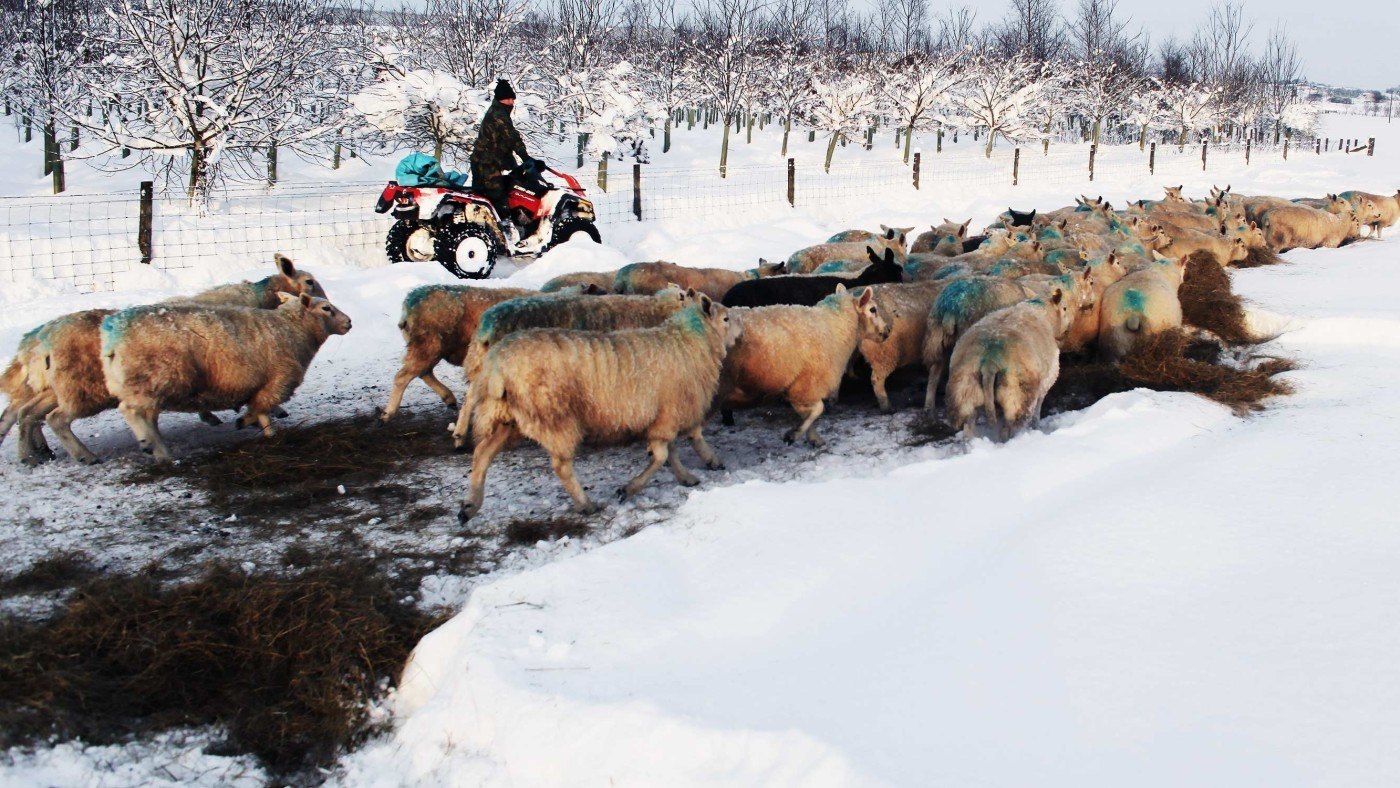In recent weeks much of the nation has been gripped by a radio soap about a fictional farming community. The Archers may be a British institution but it’s still quite some achievement for barely recognised voice actors to feature on the front pages of the national press. But while everyone else has had their ears glued to Radio 4, I’ve been occupied with some alternative agricultural entertainment in the form of BBC Scotland’s This Farming Life.
I have to admit, when I’ve tried to explain to my friends that I’m currently hooked on a 12-part BBC documentary series about Scottish farming, responses have ranged from blank stares to mild concern. But little do they realise that farming is now TV gold. Countryfile recently raked in a staggering 8.7 million viewers for one episode, that’s 3 million more than watched the finale of the Beeb’s flagship drama War and Peace. In fact that single hour of Countryfile netted BBC1 520 million viewer minutes, more than the 499 million provided by the entire on-demand viewing of BBC iPlayer for that whole week.
As a city boy who wouldn’t know my Belted Galloway from my Belgian Blue, following the trials and tribulations of five farming families from across Scotland has been a fascinating ride. Blissfully free of Countryfile’s overly chummy presenters with their pristine gilets and scripted conversations, This Farming Life delivers straight up, blood spattered, farmyard drama, all illustrated with stunning aerial footage of Caledonian countryside through the changing seasons.
The programme also provides a hefty dose of economics. Say what you like about EU subsidies and the Common Agricultural Policy, the hardy on-screen farmers are acutely aware of the power of market forces and the need to deliver what their customers demand. Whether that’s London barristers-turned Hebridean crofters, Sandy and Ali Granville, hand delivering their mutton to customers across the UK, or Loch Lomond hill farmer Bobby Lennox using ultrasound to genetically engineer his Blackface sheep so they breed lambs which meet the exacting demands of his supermarket clients.
Unlike the salaried hordes tuning in, for these entrepreneur farmers, their income is precariously reliant on the whims of the market. It’s heart-breaking to watch soon-to-be married Martin Irvine from the snowy northern reaches near Inverness, struggling to sell his award winning Limousin beef cattle at auction because the preference of London restaurateurs has shifted towards domestic breeds like the Shorthorn.
Despite the clear affection he has for his animals, when it comes to choosing which to keep and which to sell for slaughter, Martin doesn’t shy away from his long term economic plan: “Feed the best, kill the rest.”
The economics of bull sperm is also quite an eye opener. After investing in a fearsome looking male Limousin called Irish, Martin brings in burley bull breeder David Fleming to harvest the animal’s valuable sperm as both insurance should Irish get injured and for sale. It’s soon clear why you need to be solidly built, yet quick on your feet, to be a semen collector; the job involves muscling your way under a sex-starved bull weighing nearly a ton as it mounts a heifer and at the critical moment, making the vital interception. This procedure, repeated four times, results in £30,000 of spermatozoa.
Other titbits I learned were that cow caesareans are done with the mother fully awake and standing up and that livestock auctions are conducted in guineas – a guinea being worth an awkward one pound and five pence, approximately.
It’s hard not to come away with a sense of respect for these people who risk and toil to provide the food that ends up on our plates. They seem to spend most days covered in a combination of mud, urine, faeces or blood, unless it’s being washed away by rain and snow or blasted by gale force winds. The hours are brutal too, during lambing season Martin and his fiancée Mel sleep in the barn for two weeks, getting up every two hours to attend to their pregnant livestock. They also begin their wedding day by feeding cows. Yet there is something magical about the whole thing.
As a resident of London, cooped up in urban sprawl, maybe that’s my nature deficit disorder kicking in – a real thing apparently which can lead to obesity, depression and anti-social behaviour. Watching yet more television may not solve that, but it has given me a new found affection for the welly-wearing entrepreneurs keeping their farming enterprises alive and kicking.


